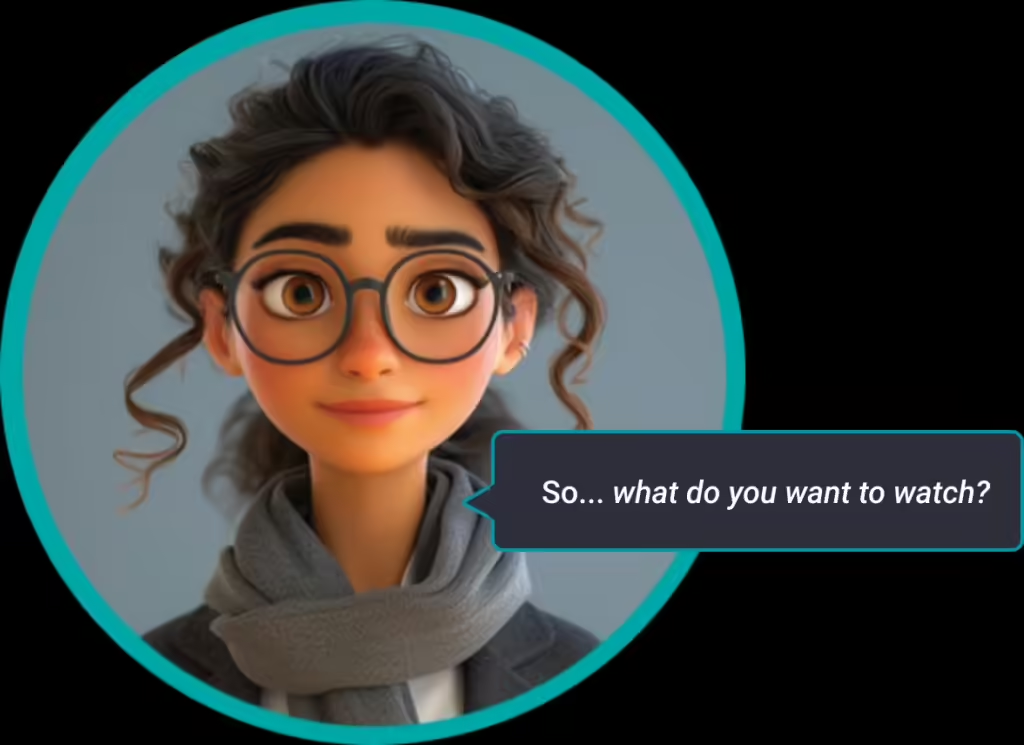Ava, the core of cineSearch, engages users with a conversational AI that emulates a knowledgeable film and TV enthusiast. It offers personalized recommendations by analyzing a multitude of factors, including title, cast, genre, theme, tone, mood, setting, music score, plot, micro-genre, as well as the viewer’s history, location, and the current date.
For streaming platforms and device manufacturers, cineSearch addresses key issues like subscriber churn and monetization friction caused by poor search functions, in theory. A Cineverse study found that one-third of viewers have canceled a streaming service due to ineffective search functionality, and 66% felt there was “nothing good to watch.” Projections suggest that cineSearch could reduce churn by 16%, leading to 24% cost savings.
Indie filmmakers also stand to gain from cineSearch. By helping viewers discover lesser-known titles, cineSearch can introduce new audiences to indie films that might otherwise go unnoticed.
The beta of cineSearch was announced in February, 2024, with developer Cineverse partnering with Google Cloud to create this AI-powered tool. Subsequent partnerships with Vionlabs, Datatonic, and Gracenote have enhanced cineSearch’s contextual understanding and ensured robust and ethical performance.
Cineverse’s Chief Technology Officer & Chief Operating Officer Tony Huidor highlighted the positive early engagement during the beta phase, noting that users have averaged 41 minutes per session. This feedback was tol guide further enhancements and feature integrations.
In a recent conversation with the Lowpass newsletter, Cineverse President and Chief Strategy Officer Erick Opeka elaborated on the technological and strategic underpinnings of Ava. He emphasized that cineSearch’s aggregation of diverse entertainment metadata and its AI model are set to transform the viewer experience. Ava, with its text-based AI chatbot persona, aims to provide more accurate and emotionally resonant recommendations.
While Ava has shown promise in early tests, occasionally missing the mark, Opeka acknowledged that the model, like all AI, would improve with increased usage. He highlighted the importance of emotion-based queries in enhancing user satisfaction, suggesting that AI behaving more like a human conversationalist could significantly elevate the search experience.

Ava is powered by Google’s Gemini AI and further refined with entertainment-specific data. Cineverse’s collaboration with a computer vision startup allows Ava to analyze films frame by frame, aiming to deepen its understanding of cinematography and other nuanced elements.
As the industry evolves, entertainment-centric AI like Ava could redefine how viewers interact with streaming services, transforming the traditional search process into a seamless, engaging experience akin to having a personal video store clerk.
The saving grace of a product like Ava for the TV manufacturers is the promise of bringing TV watching into the 21st century and delivering an experience that may be more in tune with future audiences. TV sets are still mired in the notion of 20th century family TV viewing or the idea of a TV in the living room with people gatherred around watching scheduled programming. I think everyone who has ever experienced a night of trying to find something to watch on streaming apps, which dominate the TV experience today, would agree that the process of honing in an actual program to watch is frustrating and often fruitless.
Ava may not the be answer but it certainly lends itself to creating more conversations around the future of the TV viewing experience. It also lacks an audio streaming content, which shouldn’t be discounted because over 20% of the modern activity on TVs is tied to playing music. Most TV manufacturers have a range of sound bars and audio accessories that they also sell with their products, and between music and games, there is plenty of room to innovate on the audio technology around television.
For the display industry, it may be out of the normal channels of operation to pursue user experience models that modernize the TV interface, but it may also be a necessity.

